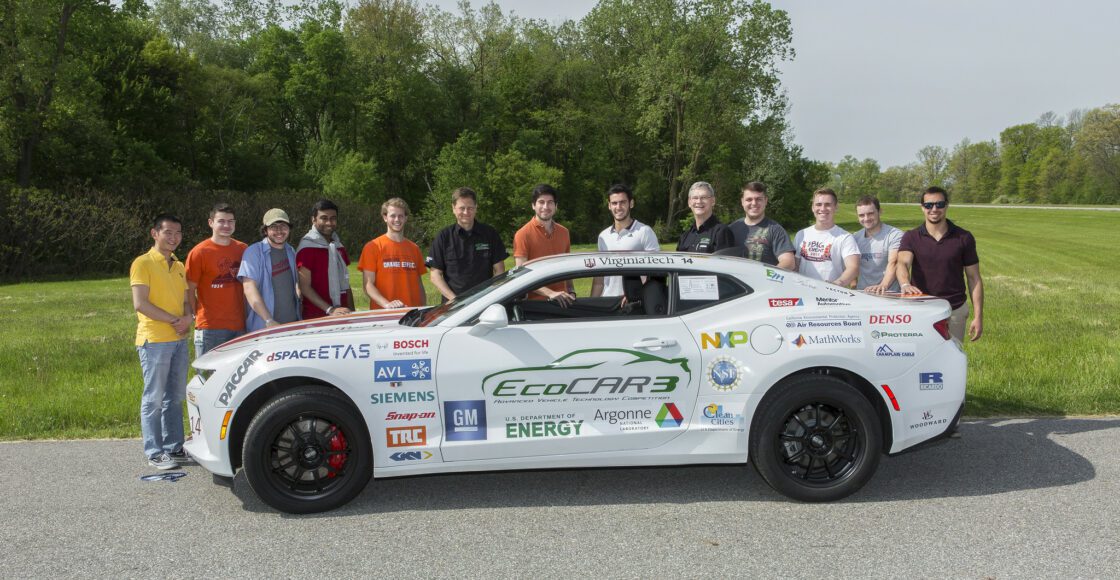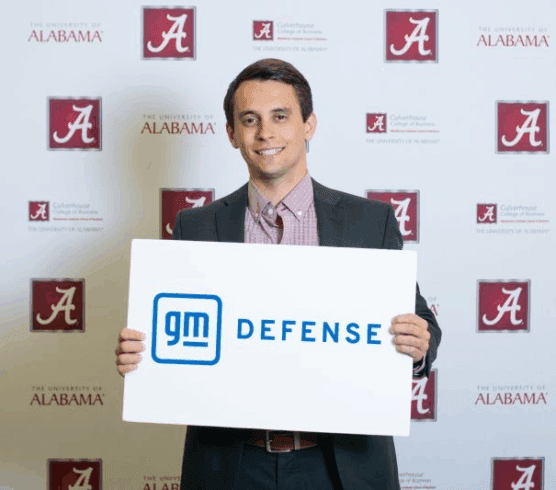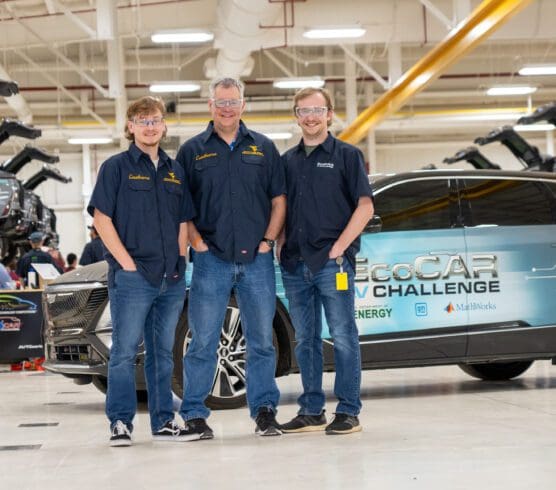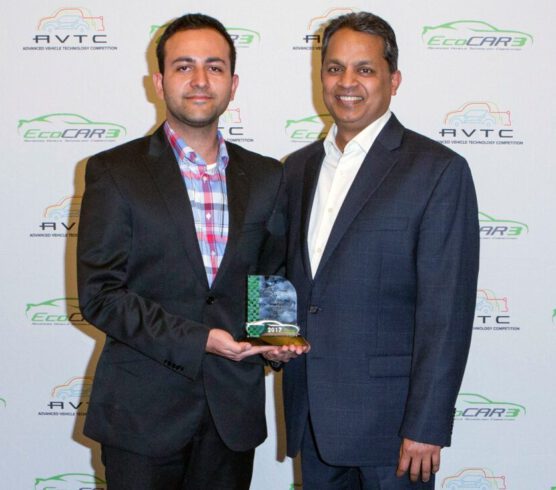Since he was a young boy, Matt Kirklin had an interest in the way things worked. His friends and family members provided him with an endless supply of broken things to take apart and fix. His interest in the way things work eventually led him to his work with the Michigan Tech FutureCar Challenge team.
As the chief mechanical engineer for the team, Matt was responsible for the development and testing of the team’s Auxiliary Power Unit (APU). It was his work with Advanced Vehicle Technology Competitions (AVTCs) that led Matt to intern in the Test Engineering Department at Ford’s Scientific Research Laboratory. It was here that he discovered the wonderful world of automotive Research and Development (R&D)
“Because of my involvement with AVTCs,” Matt said, “I already had some idea about automotive R&D, as well as experience with many of the software tools and concepts used in the automotive industry.” In 2000, Matt graduated from Michigan Tech and accepted a job with General Motors as a Fuel Cell Engineer in Honeoye Falls, New York.
“One of my first assignments was to automate some testing activities and this was very much in line with work I had done for APU development in the FutureCar program,” he said. “Even though I’m a mechanical engineer, I’ve spent most of my career working on control algorithm development for fuel cell and hybrid systems.”
After spending a few years traveling the world with his wife and daughter, including working on an international assignment for Opel in Germany, Matt is currently working for Volkswagen as a hybrid powertrain technical specialist in the main research and development center in Wolfsburg, Germany.
“My work over the past 12 years has been in research and development and in many ways continues to be an extension of my work in FutureCar,” Matt said.
Looking back on his time with the Michigan Tech FutureCar team, Matt can still remember his favorite and least favorite moments as if they were yesterday, including a small run-in with a police officer who didn’t know much about hybrids and a teammate’s high-voltage safety scare.
Matt says he likes the current format of AVTCs that follow General Motors’ vehicle development process.
“The format we used in FutureCar was so time-compressed that our designs were always a tradeoff between what we wanted to do and what we could actually accomplish in nine months,” he said. “When I look back at results, I am really amazed at what we did accomplish while taking college classes full-time.”
As for the future, Matt says he hopes to stay updated on EcoCAR 2 from the other side of the world.
“I still deeply enjoy my work and most days even look forward to getting up in the morning. I love being in the lab, I love working with my hands and I’m eager to learn something new. These are all passions that I attribute to my involvement with AVTCs.”




